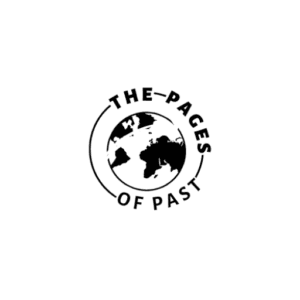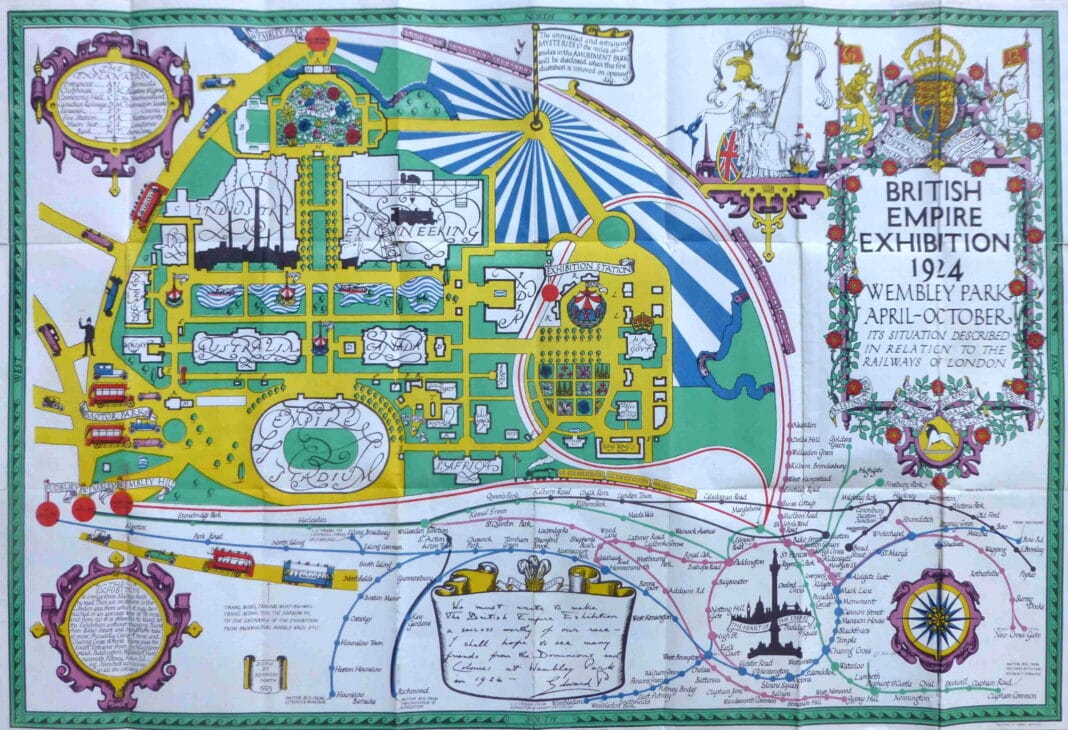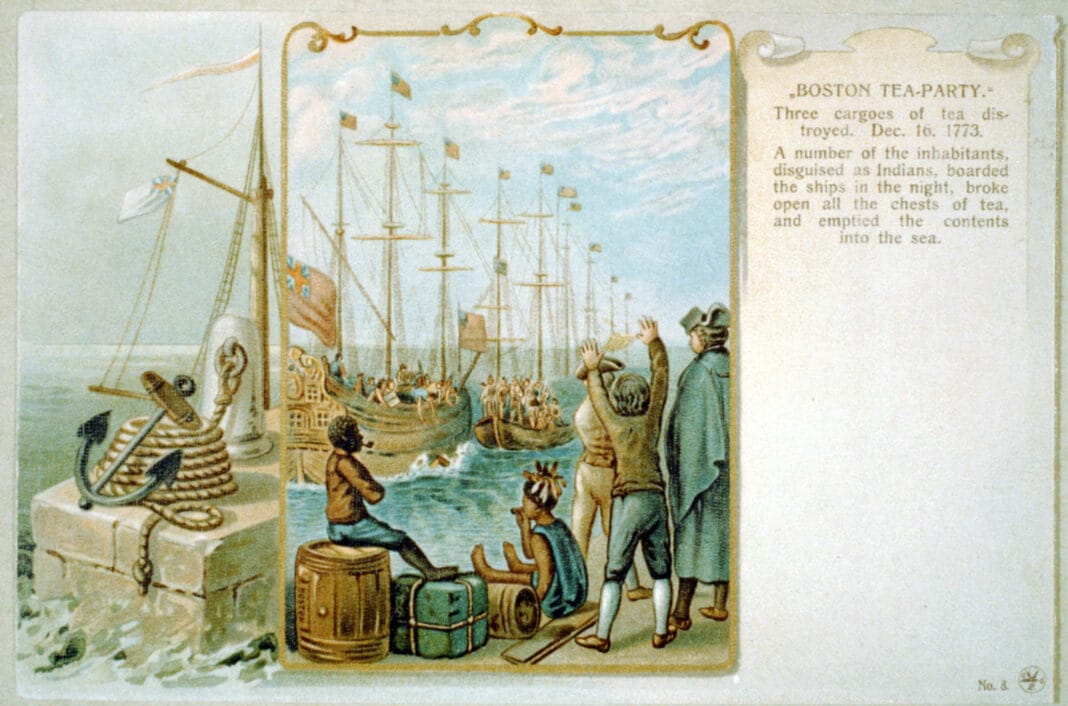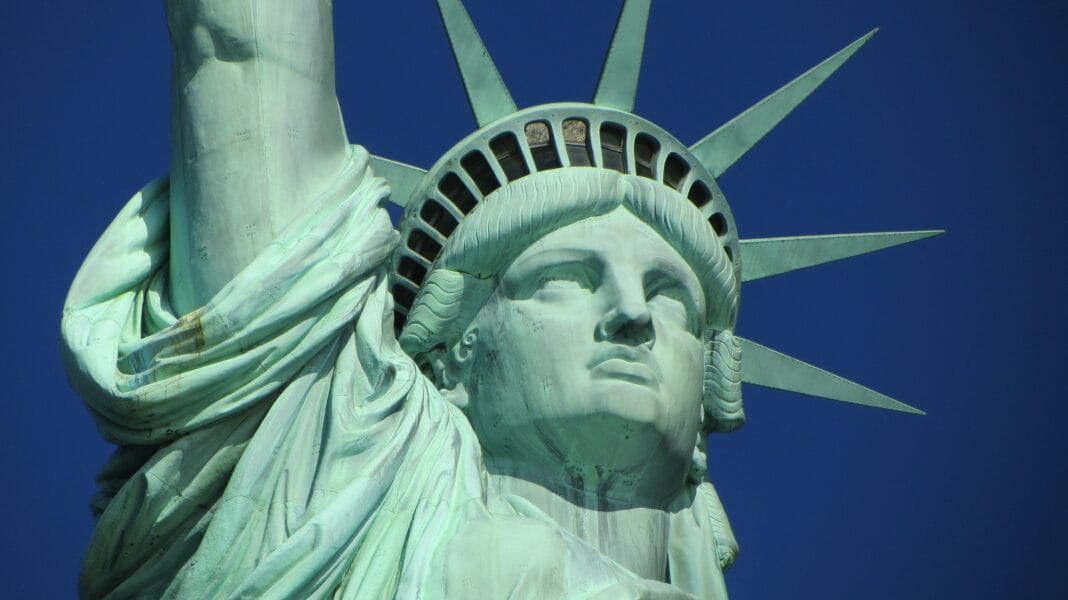Discover the impact of British Rule on history, culture, and governance. Explore its legacy, key events, and lasting influence on modern societies.
1.1 – Understanding British Rule and its Global Impact
Discover how British rule shaped nations, economies, and cultures worldwide, leaving a lasting impact on history, governance, and global relations.
British Rule has profoundly shaped the political, economic, and cultural landscapes of nations worldwide. Emerging in the late 16th century with the establishment of overseas colonies, British imperial expansion influenced regions such as North America, India, and Africa. Understanding this era is crucial for analyzing contemporary global dynamics, particularly the enduring effects of colonialism in former colonies.
1.1.1 – How the American Revolution Challenged British Rule
The American Revolution serves as a pivotal moment in the resistance against British Rule. Policies such as mercantilism and taxation fueled opposition movements, ultimately leading to independence. Historical figures like George Washington, who remarked, “Liberty, when it begins to take root, is a plant of rapid growth,” capture the prevailing sentiments and motivations of the time.
1.1.2 – Effects of British Rule on Indigenous Cultures and Governance
British Rule also deeply impacted indigenous cultures, economies, and governance structures, sparking ongoing discussions about reparations and cultural restitution. As historian Edward Said noted, “The Orient was virtually a European invention,” underscoring the imperialist narratives that often overshadowed the perspectives of colonized peoples.
Examining British Rule provides valuable insights into both historical events and their modern-day implications, setting the stage for a deeper exploration of its complexities and enduring legacy.
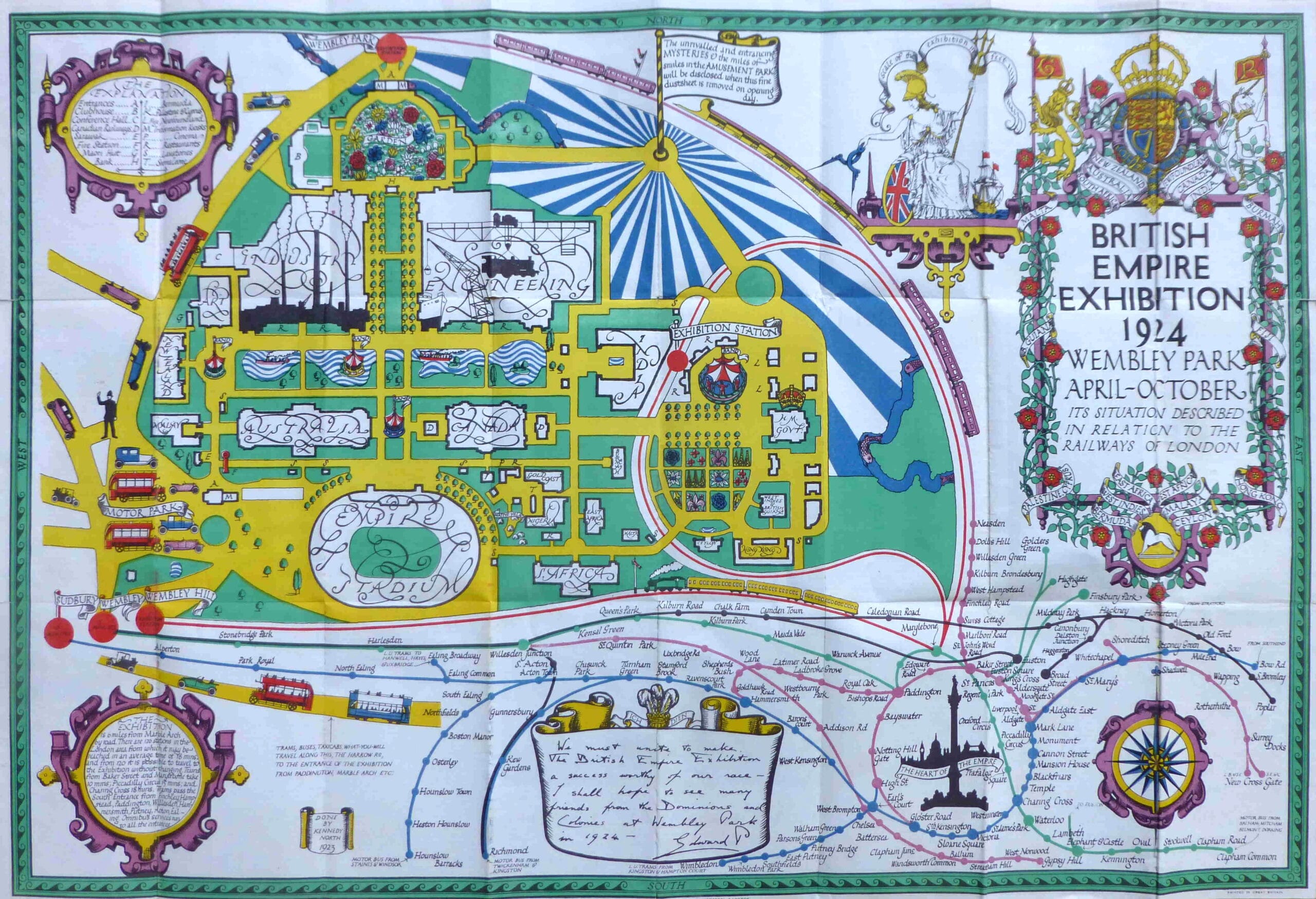
1.2 – Origins of British Rule and its Global Impact
Discover the origins of British rule and its global impact, from colonial expansion to lasting influences on politics, culture, and economies worldwide.
The historical background of British Rule is a narrative of exploration, conquest, and governance that significantly shaped global history. British Rule began in the late 16th and early 17th centuries, an era marked by European powers seeking new trade routes and territories. England, driven by the achievements of explorers like Sir Walter Raleigh and Sir Francis Drake, embarked on its journey of colonial expansion.
1.2.1 – British Early Colonization Efforts in North America
In 1585, Sir Walter Raleigh established the Roanoke Colony in present-day North Carolina, though it ultimately failed. However, the successful founding of Jamestown in 1607 marked the first permanent English settlement in America, laying the groundwork for further colonization. The Virginia Company, a joint-stock enterprise, financed this venture, reflecting the early connection between commerce and colonization.
Expansion efforts led to the establishment of the Thirteen Colonies along North America’s eastern seaboard. Each colony developed a distinct identity influenced by geography, economy, and demographics. Despite these differences, growing dissatisfaction with British governance united the colonies, eventually leading to the American Revolution.
1.2.2 – British Rule and the Rise of Mercantilist Economic Systems
British colonial policies were heavily influenced by mercantilism, an economic system that prioritized state power through regulated trade. Policies such as the Navigation Acts, enacted in the 17th century, mandated that colonial goods be transported exclusively on British ships. Colonies exported raw materials to Britain while importing finished goods, ensuring economic dependence on the Crown.
These restrictions sparked resentment as colonists felt exploited and sought greater economic autonomy. Their frustrations intensified, setting the stage for escalating tensions with the British government.
1.2.2.1 – Benjamin Franklin’s Quote on Unity Against British Rule
Benjamin Franklin famously captured this sentiment:
“We must all hang together, or assuredly we shall all hang separately,”
underscoring the need for colonial unity against British control.
1.2.3 – British Rule and the Path to the American Revolution
Events like the French and Indian War (1754-1763) further strained relations between Britain and its colonies. The war depleted British finances, prompting the Crown to impose taxes on the colonies to recover losses. Acts such as the Stamp Act of 1765 and the Townshend Acts of 1767 fueled widespread protests.
1.2.3.1 – British Rule and the Rise of Colonial Rebellion in America
Colonists rallied around slogans like “No taxation without representation,” demanding a voice in Parliament. Organized resistance, including the Boston Tea Party of 1773, exemplified their growing defiance.
1.2.3.1.1 – Samuel Adams’s Quote on Revolution Against British Rule
Samuel Adams aptly summarized the revolutionary spirit:
“It does not take a majority to prevail, but rather an irate, tireless minority keen to set brushfires of freedom in the minds of men.”
1.2.4 – How British Rule Led to American Independence and Beyond
The culmination of colonial discontent led to the American Revolutionary War in 1775. Colonists, inspired by ideals of liberty and self-governance, fought to end British Rule, declaring independence in 1776. The Treaty of Paris in 1783 formally recognized the sovereignty of the United States, marking the end of British control in America.
However, this was not the end of British imperial expansion. Throughout the 19th century, the British Empire extended its reach across Africa, Asia, and the Caribbean. The legacies of British colonial policies remain visible today, influencing global economies, politics, and cultures.
1.2.5 – The Lasting Effects of British Rule on Global Politics
The historical legacy of British Rule reflects both progress and exploitation. British governance introduced infrastructure, legal systems, and education to many colonies, but it also led to resource extraction and the marginalization of indigenous populations. These impacts continue to be debated, with modern discussions calling for reparations and recognition of historical injustices.
1.2.5.1 – Winston Churchill’s Quote on the Lasting Impact of British Rule
Winston Churchill aptly noted:
“The empires of the future are the empires of the mind,” emphasizing that the ideas forged during British Rule continue to shape global perspectives and discourse.
1.2.6 – Understanding the Legacy of British Rule in Modern History
Understanding the historical background of British Rule provides valuable insight into its enduring influence on world history. The motivations for colonization, the economic policies enforced, the fight for independence, and the British Empire’s legacy offer a complex narrative that resonates with contemporary issues of colonialism, identity, and global relations.
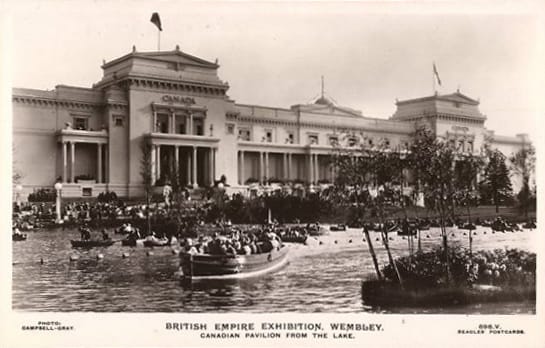
A captivating postcard from the 1924 British Empire Exhibition, showcasing the expansive reach of British rule and the profound impact of colonial influence during the early 20th century. impact of colonial influence during the early 20th century.
This captivating 1924 postcard of Wembley Stadium in London serves as a vivid reminder of the British Empire Exhibition, symbolizing the strength and influence of British rule during the colonial era.
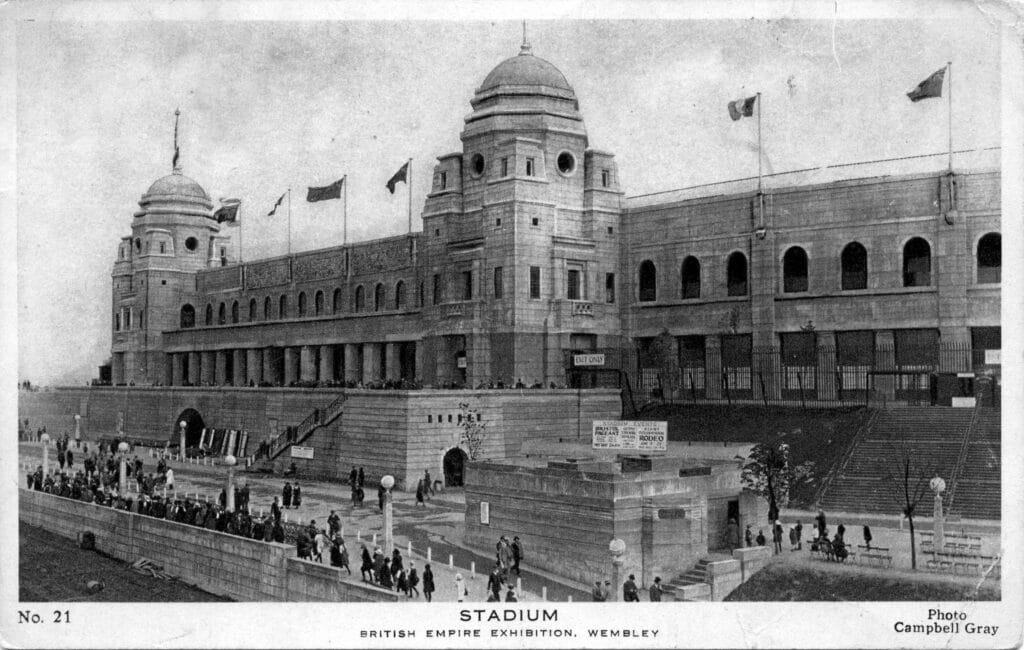
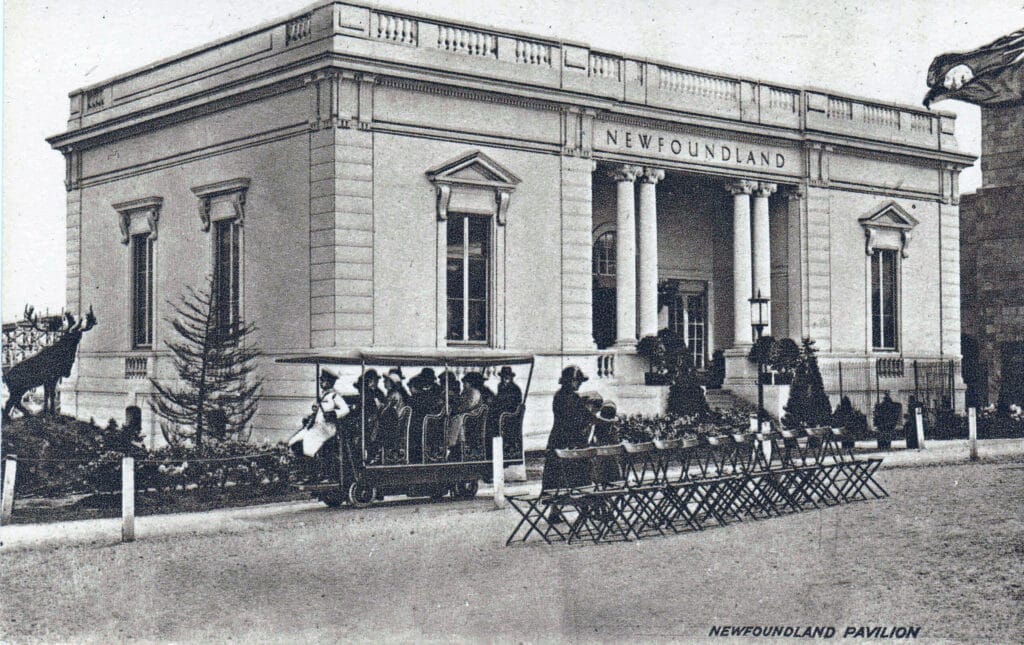
Newfoundland Pavilion at the 1924 British Empire Exhibition in Wembley showcased British rule with exhibits celebrating Canada’s role in the Empire.
1.3 – Key British Colonies and Their Global Impact
Discover how key British colonies shaped global trade, politics, and culture under British rule, leaving lasting impacts on the modern world.
The era of British Rule saw the establishment of colonies across the globe, each contributing uniquely to the narrative of imperial expansion. These colonies were not mere territories; they were centers of economic exploitation, cultural exchange, and significant historical events. Understanding these colonies helps us appreciate the complexities of colonial administration and its lasting global impact.
1.3.1 – Historical Overview of British Colonization and Empire Expansion
Beginning in the late 16th century, Britain embarked on an ambitious quest for territory and trade, driven by competition with European powers such as Spain and France. Over centuries, the British Empire grew into one of the largest in history, often described as “the sun never sets on the British Empire.” This global reach facilitated exchanges of ideas, goods, and cultures, albeit often at great cost to indigenous populations and their autonomy.
1.3.2 – The Thirteen Colonies and Their Role in British Rule (North America)
The Thirteen Colonies laid the foundation for what would become the United States. Established between the early 1600s and mid-1700s, they included:
1.3.2.1 – Virginia’s Role in the Expansion of British Rule
Home to Jamestown, the first permanent English settlement, founded in 1607. The colony’s economy thrived on tobacco cultivation, driven by enslaved labor.
1.3.2.2 – Massachusetts and Its Influence During British Rule
Founded by Puritan settlers seeking religious freedom, it became a center for education and politics, including the establishment of Harvard University in 1636.
1.3.2.3 – New York’s Transformation from Dutch to British Rule
Originally a Dutch colony named New Amsterdam, it was seized by the English in 1664, becoming a cultural melting pot.
1.3.2.4 – The Growth of Pennsylvania as a British Colony
Founded by William Penn in 1681 as a haven for Quakers, it promoted religious tolerance and democratic ideals.
These colonies faced challenges such as tensions with Indigenous populations, British mercantilist restrictions, and growing calls for independence. The phrase “No taxation without representation” became a rallying cry for colonists opposing British policies.
1.3.3 – Canada’s Role in the British Empire and Its Legacy
British control in Canada solidified after the Treaty of Paris (1763), which ended the French and Indian War. Key colonies included:
1.3.3.1 – The British Approach to Governing French-Speaking Quebec
The Quebec Act of 1774 allowed French-speaking residents to maintain their language and customs, showcasing early cultural compromise.
1.3.3.2 – British Columbia’s Economic Growth Under British Rule
Established in 1858, it became a hub for trade and migration, especially during the Gold Rush.
Canada’s gradual path to self-governance began with the Confederation of 1867, marking its transition toward independence.
1.3.4 – India Under British Rule
The British presence in India evolved from trade to territorial control through the British East India Company in the 17th century. This culminated in the Sepoy Mutiny of 1857, leading to direct British governance.
1.3.4.1 – Economic Exploitation of India During British Rule
India provided essential resources like cotton, tea, and spices. British policies often prioritized their industries over local economies.
1.3.4.2 – Western Education and Legal Systems in Colonial India
Western education and legal systems were introduced, leaving lasting effects. Figures like Mahatma Gandhi emerged from this context, advocating for independence.
1.3.4.2.1 – Gandhi’s Reflections on British Rule and Indian Independence
Gandhi stated, “A nation’s greatness is measured by how it treats its weakest members,” reflecting the colonial legacy’s complexities.
1.3.5 – British colonization of Australia and its historical impact
British colonization of Australia began in 1788 with the establishment of New South Wales as a penal colony, intended to address overcrowded prisons.
1.3.5.1 – Cultural exchange and Indigenous Australian land loss under British rule
Settlement profoundly impacted Indigenous Australians, leading to land loss and cultural disruption. These effects remain central to ongoing reconciliation efforts.
1.3.5.2 – Economic growth in Australia through British colonization
Rich resources, such as wool and gold, drove economic growth. The Gold Rush of the 1850s attracted significant immigration, shaping Australia’s demographics.
1.3.6 – British colonial rule in the Caribbean and its economic legacy
The British Caribbean colonies, including Jamaica, Barbados, and Trinidad, were central to the empire’s economy through sugar plantations.
1.3.6.1 – The role of slave labor in the British Caribbean colonies
Sugar wealth relied heavily on the brutal system of slavery. The abolition of slavery in 1833 marked a turning point, triggering social and economic upheaval.
1.3.6.2 – African, British, and Indigenous cultural blend in the Caribbean
The Caribbean remains culturally vibrant, blending African, British, and Indigenous traditions in its music, festivals, and cuisine.
1.3.7 – Colonial legacies of British rule in Africa
British colonization in Africa intensified during the Scramble for Africa in the late 19th century. Key territories included:
1.3.7.1 – Suez Canal and British influence in Egypt
Seized in 1882, Egypt was strategically vital for controlling the Suez Canal, a key trade route to India.
1.3.7.2 – Anglo-Boer War and British Imperialism in South Africa
The discovery of diamonds and gold increased British interest, leading to conflicts such as the Anglo-Boer Wars. Racial tensions and apartheid policies emerged from this colonial history.
1.3.7.2.1 – Nelson Mandela’s view on freedom and British colonial legacy in Africa
As Nelson Mandela remarked, “For to be free is not merely to cast off one’s chains, but to live in a way that respects and enhances the freedom of others.” This statement reflects Africa’s enduring struggles with colonial legacies.
1.3.8 – Understanding the legacy of British colonialism in major territories
The major colonies under British Rule played pivotal roles in shaping global history. From economic exploitation to cultural exchange, their influence persists today. Each colony’s narrative highlights themes of imperialism, resistance, and eventual independence.
Understanding this history is crucial for addressing contemporary issues surrounding colonialism, identity, and power dynamics.
1.3.8.1 – Eric Hobsbawm’s view on history and colonial legacies
Historian Eric Hobsbawm stated, “History is not a burden on the memory, but an illumination of the spirit.” By learning from the past, we can better navigate the future.
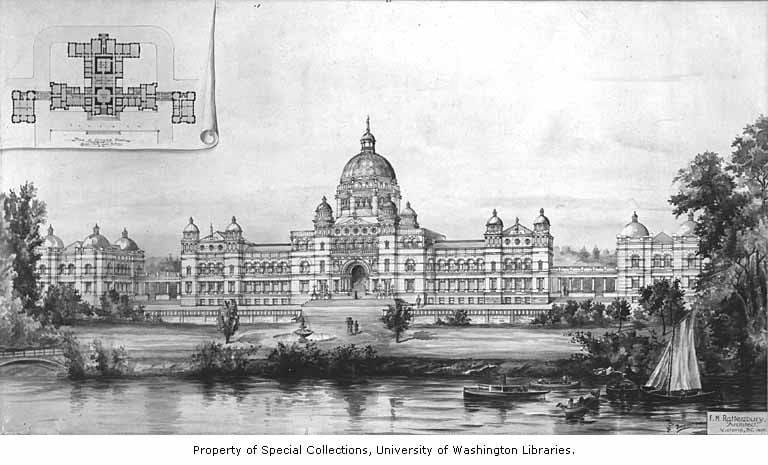
Stunning architectural drawing of the Parliament Buildings in Victoria, BC (1891-1901), vividly showcasing the grandeur and intricate design that defined the era of British rule in Canada.
1.4 – Political and Economic Impact of British Rule
Discover how British rule shaped political structures and economic policies, influencing governance, trade, and society in lasting ways. Explore its key impacts.
The British Rule left a lasting mark on the political and economic landscapes of the countries under its control. This period of imperial dominance redefined governance systems and reshaped economies, leaving effects that resonate to this day. In this section, we examine the political and economic implications of British policies and their influence on societal structures.
Understanding these impacts provides insight into the complexities of colonial history and their continued relevance in contemporary global dynamics.
1.4.1 – Colonial politics under British rule
1.4.1.1 – centralization of authority under British rule
One of the key political impacts of British Rule was the centralization of authority. The British established bureaucratic systems that often displaced traditional governance structures. For example, in India, local rulers were replaced with centralized administration.
1.4.1.1.1 – Lord Curzon’s justification for centralized rule in India
Lord Curzon, a British Viceroy in India, justified this system, stating, “The British Raj has been a benefit to India.” However, this centralization came at the cost of local autonomy and cultural heritage.
1.4.1.2 – Indian Penal Code under British rule
The British introduced uniform legal frameworks in many colonies to streamline governance. In India, the Indian Penal Code, enacted in 1860, remains a cornerstone of the country’s legal system. While these reforms brought structure, they often prioritized British interests, leading to resentment among local populations.
1.4.1.3 – The rise of political movements under British colonialism
The centralization of power and legal changes catalyzed political movements and nationalist sentiments. The Indian National Congress, founded in 1885, gave voice to demands for autonomy. Mahatma Gandhi’s philosophy of nonviolent resistance became a powerful force against colonial rule. Gandhi’s assertion, “Civil disobedience is a sacred right of the oppressed,” symbolized the growing push for self-determination across colonized nations.
1.4.2 – Economic transformation under British colonialism
1.4.2.1 – resource exploitation during British colonial rule
The British economic agenda revolved around resource exploitation. Colonies were primarily seen as suppliers of raw materials for British industries. In India, resources like cotton, tea, and spices were exported to support Britain’s manufacturing sector, disrupting local economies.
1.4.2.2 – Indian railways and infrastructure development during British rule
The British developed infrastructure, including railways and telegraph lines, to serve economic and administrative goals. For instance, India’s railway network was designed to transport raw materials to ports for export.
1.4.2.2.1 – Lord Dalhousie’s view on British colonial infrastructure
Lord Dalhousie remarked, “The railways will open up the country and make it easier for the British to exploit its resources.” While this infrastructure had long-term benefits, it primarily catered to British interests over local development.
1.4.2.3 – deindustrialization and economic decline under British rule
British economic policies exacerbated disparities in wealth and development. Traditional industries declined due to competition with British goods, leading to poverty and unemployment. In India, deindustrialization caused the collapse of local crafts and livelihoods.
1.4.2.3.1 – Gandhi’s criticism of British economic exploitation in India
Mahatma Gandhi aptly highlighted this impact, saying, “The British have robbed India of its wealth and left it in poverty.”
1.4.3 – Lasting effects of British rule on post-colonial governance
1.4.3.1 – corruption and bureaucratic inefficiency in former British colonies
The centralization of power during British Rule left enduring effects on governance structures. Countries like India and Nigeria continue to grapple with challenges such as political instability, corruption, and bureaucratic inefficiencies rooted in colonial legacies.
1.4.3.2 – effects of colonialism on wealth and development in former colonies
Colonial economic exploitation resulted in lasting disparities in wealth and development. Many former colonies remain dependent on primary commodity exports and face challenges like poverty and unemployment. Addressing these issues requires strategies that consider historical contexts and colonial legacies.
1.4.4 – famous quotes on British imperialism and colonial legacy
1.4.4.1 – Winston Churchill’s reflection on the British Empire’s foundations
Winston Churchill reflected on British imperialism, stating, “The British Empire was built on the backs of its colonies,” underscoring the exploitative economic model of colonial rule.
1.4.4.2 – Tilak’s declaration of Swaraj as resistance against British colonialism
Bal Gangadhar Tilak, a prominent Indian nationalist leader, famously declared, “Swaraj is my birthright, and I shall have it,” capturing the determination and spirit of resistance against British Rule.
1.5 – Cultural impact of British rule on global societies
Discover how British rule shaped cultures worldwide, influencing language, governance, and traditions, leaving a lasting impact on global societies and identities.
The British Rule profoundly shaped the cultural landscapes of the nations it governed, leaving a legacy that endures today. This section delves into the cultural influences stemming from British colonialism, exploring language, education, governance, and social structures while reflecting on notable quotes and anecdotes that capture the essence of this historical period.
Understanding the cultural impact of British Rule is essential for appreciating historical contexts and recognizing how these influences resonate in contemporary society. The legacies of British colonialism are multifaceted, affecting various aspects of life in both former colonies and Britain itself.
1.5.1 – The cultural significance of English language in post-colonial societies
1.5.1.1 – How British rule expanded the English language globally
One of the most enduring legacies of British Rule is the global spread of the English language. English has become a lingua franca, facilitating communication and commerce worldwide. Its influence is particularly strong in former colonies like India, Nigeria, and Kenya, where it serves as an official or second language.
1.5.1.2 – Nelson Mandela’s view on language and identity during British colonialism
Nelson Mandela once said, “If you talk to a man in a language he understands, that goes to his head. If you talk to him in his language, that goes to his heart.” This highlights the role of language in shaping cultural identity.
1.5.1.3 – The literary influence of British rule in colonized countries
British literature and education systems introduced the works of authors such as Charles Dickens, Jane Austen, and George Orwell to colonized nations. These influences inspired local writers to create literary works that blend indigenous traditions with colonial narratives.
For instance, Chinua Achebe, the Nigerian author of “Things Fall Apart”, used English literary forms to depict the cultural clash caused by colonization. His work reflects the struggles experienced by many nations during and after British rule.
1.5.2 – British education system in colonial societies
1.5.2.1 – Western education in colonies under British rule
British colonialism established Western-style education systems, transforming local learning practices. Schools focused on English literature, science, and philosophy while often sidelining indigenous knowledge systems. This shift created a divide between the educated elite and the broader population, deepening social stratification.
1.5.2.1.1 – Gandhi’s perspective on education systems imposed by British rule
Mahatma Gandhi criticized this, remarking, “The British education system aimed to create a class of persons Indian in blood and color, but English in tastes, in opinions, in morals, and in intellect.” This statement underscores the cultural challenges posed by imposing foreign education systems.
1.5.2.2 – How British colonial education systems still influence former colonies
British-style education continues to shape academic curricula and career pathways in many former colonies. English as a medium of instruction has brought opportunities but also sparked debates about preserving indigenous languages and traditions.
1.5.3 – Governance under British rule and its legacy in modern democracies
1.5.3.1 – Parliamentary systems introduced during British colonial rule
The British introduced parliamentary systems of governance, frameworks that persist in many nations today. Countries like India, Canada, and Australia adopted these systems, contributing to the development of democratic institutions.
1.5.3.1.1 – Winston Churchill’s quote on democracy and British governance
Winston Churchill aptly noted, “Democracy is the worst form of government, except for all the others that have been tried.” This reflects the enduring complexities of governance structures introduced during colonial rule.
1.5.3.2 – British colonial legal systems’ influence on modern laws
British legal systems standardized laws and judicial practices in many colonies, often replacing indigenous legal frameworks. While these reforms laid the foundation for modern judicial systems, they also marginalized local customs, creating long-term societal tensions.
Reconciling colonial-era legal systems with traditional practices remains a challenge in many nations striving to balance heritage with modernity.
1.5.4 – British Rule social structures and cultural exchanges in colonies
1.5.4.1 – Social hierarchies during British colonial rule in India
Colonial policies reinforced existing social hierarchies and introduced new divisions based on race and class. In India, for example, British Rule exacerbated caste divisions, deepening social inequalities.
1.5.4.1.1 – Gandhi’s ideas on measuring societal progress under British Rule
Mahatma Gandhi emphasized societal values, stating, “The true measure of any society can be found in how it treats its most vulnerable members.” This sentiment highlights the lingering social challenges of colonial legacies.
1.5.4.2 – Cultural exchanges between the British and colonized nations
Despite its challenges, British colonialism also facilitated cultural exchanges. Western art, music, and cuisine influenced local traditions, while indigenous cultures experienced a resurgence of pride and creativity. This cultural blending resulted in unique hybrid identities that persist today.
1.5.4.2.1 – Rudyard Kipling’s view on East-West cultural interactions during British Rule
Rudyard Kipling’s famous line, “East is East, and West is West, and never the twain shall meet,” reflects the complexities of cultural interactions during this period. However, history demonstrates that such interactions often led to dynamic new forms of expression.
1.5.5 – Cultural legacies of British colonialism and their effect on nationalism
The cultural impact of British Rule extends beyond language and governance, shaping societal norms and values. Former colonies continue to grapple with their colonial past while striving to honor indigenous heritage and build modern national identities.
1.5.5.1 – The role of British colonialism in shaping cultural identity and nationalism
Nationalist movements in colonized nations often sought to reclaim cultural identities eroded by colonialism. Leaders like Jomo Kenyatta in Kenya and Kwame Nkrumah in Ghana emphasized the importance of cultural heritage in nation-building.
1.5.5.1.1 – Jomo Kenyatta’s view on reclaiming cultural identity post-British Rule
Jomo Kenyatta famously said, “The African is not an alien in his own land,” encapsulating the desire to reclaim identity and self-determination.
1.5.6 – Key quotes on British Rule from notable figures like Orwell and Ambedkar
1.5.6.1 – George Orwell’s Perspectives on British Rule in Burmese Days
George Orwell, in Burmese Days, explored the tensions of colonial life, reflecting the complexities of cultural identity under British Rule.
1.5.6.2 – Dr. B.R. Ambedkar’s quotes on equality under British Rule in India
Dr. B.R. Ambedkar, an Indian social reformer, emphasized equality, stating, “I measure the progress of a community by the degree of progress which women have achieved.”
1.5.7 – Final thoughts on the cultural legacy of British rule
The cultural legacy of British Rule is profound and multifaceted, influencing language, education, governance, and social structures across the globe. While these legacies present challenges, they also highlight the resilience of nations in preserving their cultural identities and embracing modernity.
1.6 – British rule in colonial administration and governance
Discover how British rule shaped colonial administration and governance, influencing laws, policies, and institutions that impacted societies under imperial control.
The British Empire established complex systems of governance across its colonies, profoundly influencing their political and social structures. This section explores the intricacies of colonial administration, the governance frameworks used, and their long-term effects on the colonies and their people.
Understanding British governance systems is essential for recognizing both the historical context of colonialism and its enduring legacy. Colonial administrative structures often combined direct and indirect rule, with variations across different regions and cultures.
1.6.1 – How British Rule Structured Colonial Administration
1.6.1.1 – Hierarchical framework of British colonial governance
At the top of the colonial administration was the Governor, appointed by the British Crown. The Governor held significant authority, overseeing the execution of laws and policies while representing British interests. Below the Governor were various departments, such as finance, law, and public works, each managing specific aspects of governance.
1.6.1.1.1 – Winston Churchill on British Empire governance
Winston Churchill remarked, “The empires of the future are the empires of the mind,” reflecting the ideological basis of British colonial administration, where governance was often tied to a paternalistic view of empire.
1.6.1.2 – Indirect rule and local administration during British colonialism
In many colonies, local governance structures were created to handle everyday affairs. This included the appointment of local leaders who acted as intermediaries between the colonial government and the indigenous population. This system, known as indirect rule, was implemented in regions like Nigeria and India, allowing the British to maintain control while minimizing administrative costs. However, this often led to conflicts, as local power structures were undermined or co-opted, resulting in lasting divisions.
1.6.2 – Governance policies under British colonial rule
1.6.2.1 – British colonial laws and their effect on colonies
British colonial governance featured a complex legal framework. Colonial laws often imposed British legal principles on local populations, which sometimes conflicted with indigenous customs and practices, causing social disruption. This replacement of traditional legal systems fostered resentment among colonized peoples.
1.6.2.2 – Gandhi on British colonial laws and their injustice
Mahatma Gandhi famously said, “An unjust law is itself a species of violence,” reflecting discontent with laws that ignored local traditions and governance structures.
1.6.2.3 – Economic policies of British rule in India and the Caribbean
Economic governance was another key aspect of British Rule. Colonies were treated as sources of raw materials and markets for British goods. Policies aimed at extracting resources, often disregarding local economies or the welfare of indigenous populations, prioritized British economic interests.
The plantation systems in the Caribbean and the focus on cash crops in India are prime examples of this approach, which led to widespread exploitation and economic dependency.
1.6.3 – Effects of British colonial rule on Indigenous societies
1.6.3.1 – British disruption of traditional Indigenous governance systems
British governance often disrupted traditional leadership systems. Many local leaders were marginalized or incorporated into the colonial administration, resulting in a loss of autonomy and self-governance.
Chief Sitting Bull, a prominent leader of the Lakota Sioux, emphasized the value of traditional governance: “The man who sat down to do nothing and the man who sat down to do something have one thing in common; they both sit down.” This highlights the importance of active leadership, which was often undermined by British colonial structures.
1.6.3.2 – British Colonial Social Stratification in India
Colonial administration contributed to the emergence of new social hierarchies, often favoring certain ethnic or social groups, leading to divisions within societies. This was evident in India, where the British exploited existing caste divisions to maintain control, fostering long-lasting social fragmentation.
1.6.4 – How colonial rule shaped resistance and adaptation in colonies
1.6.4.1 – Indigenous uprisings and protests against British colonialism
British governance prompted various forms of resistance from indigenous populations, ranging from passive resistance to armed uprisings. Figures like Emmeline Pankhurst in the UK and Mahatma Gandhi in India embodied the fight for self-determination and the rights of colonized peoples.
1.6.4.1.1 – Mahatma Gandhi’s philosophy of resistance to British colonialism
Mahatma Gandhi stated, “Strength does not come from physical capacity. It comes from an indomitable will.” This encapsulates the spirit of resistance against colonial rule, emphasizing the resilience of indigenous movements.
1.6.4.2 – Cultural adaptation under British colonial rule
Despite the oppressive nature of colonial governance, many communities adapted and found ways to navigate the colonial system. Local leaders often engaged with colonial authorities while striving to preserve their cultural identities and governance practices.
1.6.5 – How colonial governance affects post-colonial governance today
The legacy of the British colonial administration continues to shape the political and social landscapes of former colonies. Many countries retain elements of the British legal system and parliamentary governance, which continue to influence their political evolution.
1.6.5.1 – Challenges faced by post-colonial nations in governance
The challenges faced by many post-colonial nations, such as political instability and social inequality, are often linked to the colonial governance structures established during British Rule. The lack of inclusive governance and the marginalization of local traditions contributed to ongoing conflicts in various regions.
1.6.5.1.1 – Kwame Nkrumah’s views on post-colonial governance
Kwame Nkrumah, the first President of Ghana, stated, “We face neither East nor West; we face forward,” reflecting the aspirations of post-colonial nations to chart their own paths while confronting the legacies of colonial governance.
1.6.6 – Powerful quotes on resistance to British colonial governance
1.6.6.1 – Albert Einstein’s views on colonial governance and evil
Albert Einstein once said, “The world is in greater peril from those who tolerate or encourage evil than from those who commit it.” This resonates with the moral implications of colonial governance and its impact on indigenous populations.
1.6.6.2 – Nelson Mandela’s quote on the significance of life and governance
Nelson Mandela remarked, “What counts in life is not the mere fact that we have lived. It is what difference we have made to the lives of others that will determine the significance of the life we lead.” This underscores the importance of governance that prioritizes the welfare of the people.
1.7 – Resistance movements against British rule history
Discover key resistance movements against British rule, exploring their impact, leaders, and strategies that shaped history and inspired future struggles for freedom.
The era of British rule saw the rise of resistance and independence movements across the globe. These movements were fueled by various factors such as cultural suppression, economic exploitation, and political disenfranchisement. This section delves into the ideologies, strategies, and lasting impacts of the most significant independence movements, highlighting the key figures involved in the fight for self-determination.
1.7.1 – Historical context of resistance to British rule
1.7.1.1 – Roots of discontent under British rule
Discontent with British rule stemmed from oppressive laws, heavy taxation, and cultural assimilation. Indigenous populations faced widespread exploitation, sparking a desire for autonomy and self-governance.
1.7.1.1.1 – Gandhi’s philosophy of nonviolence against the British Empire
Mahatma Gandhi, who famously stated, “The best way to find yourself is to lose yourself in the service of others,” captured the altruistic motivations behind these movements.
1.7.1.2 – Early resistance movements against British colonialism
Early resistance often took the form of localized protests and uprisings. The Indian Rebellion of 1857 was a significant turning point, driven by economic hardships and cultural insensitivity, and it inspired future independence movements.
1.7.2 – Key independence movements against the British Empire
1.7.2.1 – Indian independence movement against British rule
The Indian Independence Movement is one of the most prominent examples of resistance. Led by figures such as Mahatma Gandhi, Jawaharlal Nehru, and Subhas Chandra Bose, this movement employed nonviolent resistance, civil disobedience, and mass mobilization. Gandhi’s philosophy of Satyagraha—nonviolent resistance—became a cornerstone of the movement. His quote, “You must be the change you wish to see in the world,” encapsulated this ethos. India’s independence in 1947 inspired other colonies to seek freedom.
1.7.2.2 – Irish War of Independence against the British
The Irish War of Independence (1919-1921) was another key resistance movement. Figures like Michael Collins and Eamon de Valera led a guerrilla war against British forces, ultimately securing the Anglo-Irish Treaty and establishing the Irish Free State, a significant step toward Irish independence.
1.7.3 – African resistance movements against British colonialism
1.7.3.1 – Mau Mau Uprising Kenya against British rule
In Kenya, the Mau Mau Uprising (1952-1960) was driven by opposition to oppressive land policies and social injustices. The Mau Mau rebels, particularly from the Kikuyu ethnic group, fought against colonial exploitation. Their slogan, “Freedom is Coming,” symbolized their relentless pursuit of independence, culminating in Kenya’s independence in 1963.
1.7.3.2 – ANC resistance against British rule in South Africa
In South Africa, resistance to British colonial rule evolved into the fight against apartheid—a system of racial segregation. Leaders like Nelson Mandela and organizations such as the African National Congress (ANC) were central to this struggle. Mandela’s quote, “It always seems impossible until it’s done,” embodies the resilience that led to South Africa’s transition to democracy in the 1990s.
1.7.4 – Colonial resistance movements in the Caribbean and Latin America
1.7.4.1 – Haitian Revolution fight against French colonial rule
The Haitian Revolution (1791-1804) was the first successful slave revolt that led to the establishment of an independent nation in the Western Hemisphere. Under leaders like Toussaint L’Ouverture, enslaved Africans in Saint-Domingue (now Haiti) rose against French colonial rule. L’Ouverture’s words, “In the name of liberty, I will fight until death,” reflect the determination of the Haitian people in their struggle for freedom.
1.7.4.2 – Latin American independence against British and Spanish rule
Throughout the early 19th century, Latin America saw a wave of independence movements against Spanish and Portuguese rule. Leaders like Simón Bolívar and José de San Martín fought to liberate countries in South America. Bolívar’s quote, “I am convinced that the only way to save our republics is by uniting,” reflects his vision for a united Latin America and the region’s determination to achieve self-determination.
1.7.5 – Legacy of resistance movements against British colonialism
The resistance movements against British rule and other colonial powers reshaped the political landscape of the 20th century. Their legacies continue to influence modern struggles for justice, equality, and self-determination worldwide. Angela Davis captured this enduring spirit with her statement, “I am no longer accepting the things I cannot change. I am changing the things I cannot accept.”
1.8 – Contemporary views on British Rule’s impact on former colonies
Explore how British Rule shaped former colonies, influencing economies, governance, and culture. Uncover diverse contemporary perspectives on its lasting impact.
The legacy of British Rule continues to shape modern society, particularly in former colonies. This influence is evident in political structures, cultural identities, and social dynamics worldwide. This exploration delves into differing views on colonialism, its effects on global relations, and its ongoing role in discussions around race, identity, and governance.
The effects of British Rule are not merely historical; they continue to influence relationships between former colonies and the UK, impacting politics, economics, and culture. Conversations surrounding reparations, post-colonial identity, and critiques of colonial narratives are becoming increasingly prominent in today’s globalized world.
1.8.1 – Legacy of British colonialism in former colonies
1.8.1.1 – Historical Context of British Empire on former colonies
The British Empire, one of the largest in history, governed vast territories and brought significant political, social, and economic changes to its colonies. The remnants of this colonial past still shape various regions today.
1.8.1.1.1 – Influence of Churchill on Historical Perspectives of British Rule
Winston Churchill once remarked, “History will be kind to me for I intend to write it.” This sentiment highlights how historical narratives are often shaped by those in power, underscoring the importance of critically engaging with history.
1.8.1.2 – Perspectives on British colonial rule from former colonies
British views often highlight the empire’s benefits, such as infrastructure development, education, and legal systems, while perspectives from former colonies emphasize exploitation, cultural erasure, and long-lasting socio-economic disparities caused by colonial policies.
1.8.1.2.1 – How Edward Said challenged British colonial perspectives
Edward Said, in his work Orientalism, critiqued how Western narratives have historically portrayed Eastern cultures, often reducing them to stereotypes that serve colonial interests. This prompts essential questions about whose voices are heard and whose are marginalized in historical narratives.
1.8.2 – Current debates on the impact of British Rule
1.8.2.1 – Frantz Fanon and Homi K. Bhabha on British colonial impact
Post-colonial theory offers a critical framework for understanding the complexities of colonial legacies. Scholars like Frantz Fanon and Homi K. Bhabha analyzed the psychological and cultural effects of colonialism, stressing the need to reclaim silenced narratives.
1.8.2.1.1 – Fanon’s quote on generational responsibility in post-colonial justice
Fanon’s quote, “Each generation must discover its mission, fulfill it or betray it,” emphasizes the responsibility of contemporary societies to confront their colonial past and work toward justice and equality.
1.8.2.2 – Reparations discussions in the Caribbean for British colonial exploitation
Calls for reparations for countries affected by British colonial rule have gained traction. These discussions reflect a broader trend in post-colonial discourse, focusing on acknowledging historical wrongs and addressing their current-day consequences.
In regions like the Caribbean, reparations for slavery and colonial exploitation are key issues, with advocates pushing for official recognition and compensation for descendants of those impacted. The reparations debate raises complex questions about responsibility, justice, and reconciliation.
1.8.3 – Cultural reclamation in former British colonies
1.8.3.1 – Role of writers like Achebe and Ngũgĩ in colonial resistance
Art and literature have become powerful tools for former colonies to reclaim their cultural narratives and resist colonial influences. Writers such as Chinua Achebe, Ngũgĩ wa Thiong’o, and Salman Rushdie explore identity, displacement, and resistance to colonial narratives.
1.8.3.1.1 – Chinua Achebe’s view on the importance of cultural narratives
Achebe’s quote, “Until the lions have their own historians, the history of the hunt will always glorify the hunter,” emphasizes the need to amplify marginalized voices in historical accounts.
1.8.3.2 – Decolonizing education systems in former British colonies
Education plays a crucial role in shaping modern perspectives on British Rule. Many former colonies are working to decolonize their education systems by incorporating indigenous knowledge and local histories.
For example, in South Africa, the #RhodesMustFall movement sparked nationwide discussions about colonialism’s legacy in education, urging universities to reconsider colonial-era names and curricula.
1.8.4 – British Rule’s Impact on Global Politics and International Relations
1.8.4.1 – The Legacy of British Rule in Commonwealth Relations Today
The Commonwealth of Nations, a political association of mostly former British colonies, provides a platform for collaboration and dialogue. However, the legacy of colonialism complicates these relationships, as many members still struggle with historical grievances and unequal power dynamics.
Critics question whether the Commonwealth is a genuine partnership or a continuation of colonial relationships dressed as diplomacy.
1.8.4.1.1 – How Gandhi’s Views on Society Relate to Commonwealth Relations and Colonialism
Mahatma Gandhi stated, “The true measure of any society can be found in how it treats its most vulnerable members,” prompting reflection on the Commonwealth’s role in supporting or hindering member states’ sovereignty.
1.8.4.2 – Geopolitical Impacts of British Rule in the Modern World
The effects of British Rule are evident in contemporary geopolitics, particularly in global trade, immigration policies, and diplomatic relations. Many former colonies find themselves at a disadvantage in these discussions.
Colonial legacies continue to shape global power structures, as seen in debates about climate change and resource distribution. Former colonies, often the most affected by environmental degradation, bear little responsibility for its causes.
1.8.4.2.1 – Ban Ki-moon’s Leadership on Environmental and Social Issues Post-British Rule
Ban Ki-moon, the former UN Secretary-General, highlighted this interconnectedness: “Saving our planet, lifting people out of poverty, advancing economic growth… these are the same fight.”
1.8.5 – How Modern Activism Challenges the Legacy of British Colonialism
1.8.5.1 – How Grassroots Movements Advocate for Reparations and Justice Post-British Rule
Grassroots movements are increasingly influential in advocating for social justice, reparations, and acknowledgment of historical injustices. Activists leverage lessons from the past to mobilize communities and demand accountability.
The Black Lives Matter movement has sparked global conversations about systemic racism, colonialism, and the need for equity, highlighting the continued impact of colonial legacies on marginalized communities today.
1.8.6 – Exploring the Legacy of British Rule Through Famous Quotes
1.8.6.1 – Nelson Mandela’s Call for Social Justice and Its Connection to British Rule
Nelson Mandela said, “What counts in life is not the mere fact that we have lived. It is what difference we have made to the lives of others that will determine the significance of the life we lead.” This resonates with movements addressing past injustices and fostering a better future.
1.8.6.2 – Malala Yousafzai’s Advocacy for Education and Its Connection to British Colonial History
Malala Yousafzai, an advocate for girls’ education, emphasized the transformative power of education: “One child, one teacher, one pen, and one book can change the world.” This highlights the ongoing fight for educational equity rooted in the colonial experience.
1.9 – What We Learned from British Rule
Discover key lessons from British Rule, including its impact on governance, law, and society, and how its legacy shaped modern institutions and global history.
The British Rule had a profound impact on contemporary societies, continuing to shape the modern world. The legacies of colonialism influence political structures, cultural identities, and social dynamics. As individuals seek information, they explore the political and economic consequences of British governance, the enduring cultural legacies, and the movements advocating for reparations and social justice.
Understanding British Rule enriches discussions on identity, power dynamics, and historical grievances, making it essential for both students and the general public. This exploration provides a deeper understanding of the complexities surrounding colonialism and its lasting effects, fostering informed conversations on race, identity, and justice in today’s global context. Acknowledging these impacts is key to building a more equitable and inclusive future, encouraging society to confront its past while striving for progress.
